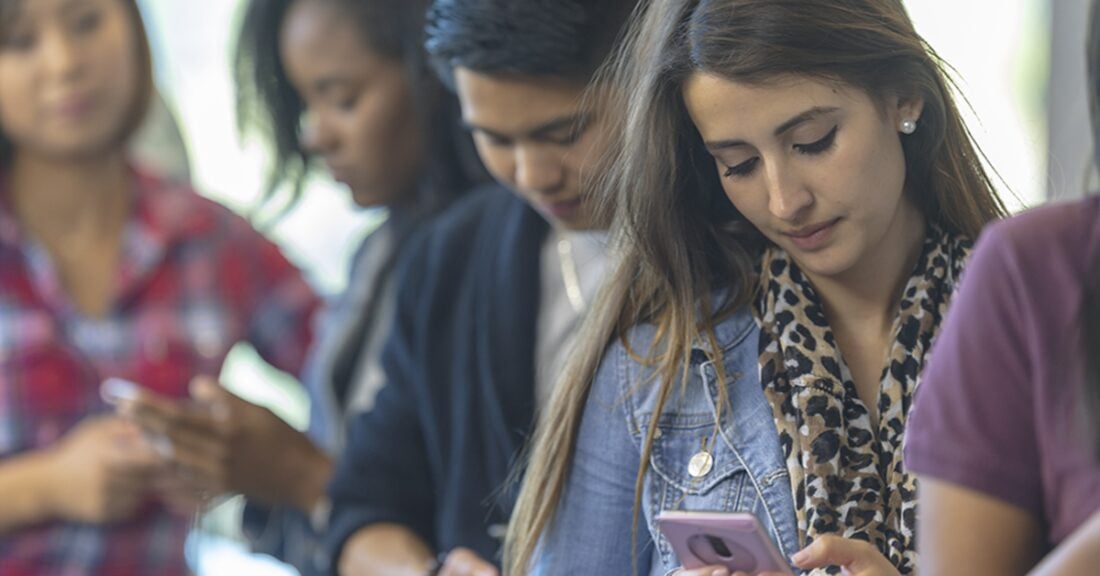Effects of Social Media on Mental Health

How Does Social Media Affect Mental Health?
In less than a generation, social media was born and evolved into a staple of modern life. Today, the “typical” social media user spends two hours and 23 minutes a day perusing social platforms. And 1 in 5 teens report being on YouTube or TikTok “almost constantly,” according to a 2023 survey by Pew Research Center.
Despite social media’s enormous popularity, many mental health experts urge caution. Multiple studies have found a strong link between heavy social media and an increased risk of depression, anxiety, loneliness, self-harm and even suicidal thoughts, according to the global nonprofit HelpGuide.org.
Is Social Media Bad for Mental Health?
In 2023, U.S. Surgeon General Dr. Vivek Murthy issued an advisory calling attention to “the growing concerns about the effects of social media on youth mental health.” The advisory highlights a number of research findings that associate social media use with mental health concerns. For example, it noted that American teens, ages 12 to 15, who spent more than three hours a day on social media faced double the risk of experiencing poor mental health outcomes, including symptoms of depression and anxiety.
Read more on social media and teen mental health
Social media use can also lead to FOMO — a fear of missing out. Viewing the highlights of someone else’s life can make it easy to draw comparisons while stoking feelings of inadequacy. Researchers have also linked FOMO from social media to insufficient sleep and feelings of anxiety and depression.
Social media experiences can and do differ depending on a user’s race, age, gender and sexual orientation. For example, as reported in the surgeon general’s advisory:
- Nearly 60% of adolescent girls reported feeling uncomfortable due to an interaction with a stranger on social media.
- Among adolescent social media users, 64% say they have been exposed to hate-based content at least “sometimes,” while 1 in 3 adolescent girls of color report encountering racist content online.
- For teenage girls, ages 13 to 17, 46% reported that social media made them feel worse about their bodies. Facebook use was associated with depression among people younger than 35. In the over-35 age group, using TikTok or Snapchat — but not Facebook — was connected to symptoms of depression, according to a 2022 multidisciplinary study on social media use and adult depression.
10 Negative Impacts of Social Media
How can social media negatively impact a user’s mental health? Some consequences that researchers associate with these platforms include:
- worsening anxiety and depression;
- addiction to technology;
- experience with cyberbullying;
- normalizing high-risk behaviors;
- worsening body image;
- decreased productivity;
- exposure to inappropriate content, including sexual and hate-based content;
- disrupted or reduced levels of sleep;
- reduced physical activity; and
- social isolation.
Learn about how to safely and responsibly use the internet
Positive Effects of Social Media on Mental Health
Social media isn’t all bad. Many people use social media for its benefits — to connect with friends, learn something new, facilitate a sense of belonging and more. As the American Psychological Association puts it, social media is a communication tool that both “charms and harms.”
Discover internet safety tips for teens
Some of the mental health-related benefits of social media, as identified by HelpGuide.org, include:
- facilitating creative expression;
- staying in touch with friends and family who live far away;
- networking with like-minded people and groups;
- joining and engaging in worthwhile causes;
- gaining or giving emotional support during challenging times;
- accessing online support resources and care; and
- learning about new topics, products and trends.
Mental Health in the Age of Social Media
Individuals can practice responsible and safe social media use while also protecting their mental health and well-being. Some smart steps to consider taking include:
- Reducing screen time. Cutting social media use to 30 minutes a day resulted in young adults experiencing significantly reduced levels of anxiety, depression, loneliness, sleep problems and FOMO, according to a 2018 study by the University of Pennsylvania.
- Building connections offline. Set aside time to connect directly with family and friends, volunteer for a good cause or join a group of like-minded individuals that meet up on a regular basis.
- Monitoring and limiting children’s use of social media. Parental control apps can help restrict a child’s phone use and safeguard their privacy. Parents can also establish social media breaks designed to help kids both disconnect and develop healthier technology habits.
- Remembering that social media isn’t real life. It’s helpful to recognize (and to remind younger social media users) that people can easily manipulate, enhance and curate the posts and information they’re sharing.
- Understanding the relationship between social media and sleep. Parents of young social media users should consider instituting a no-technology hour before bedtime to support healthy sleep habits. Adults should consider leaving their devices in another room to charge overnight.
Read about the effects of social media and technology on Gen Alpha
See the rate of children and teens with anxiety or depression in the United States





